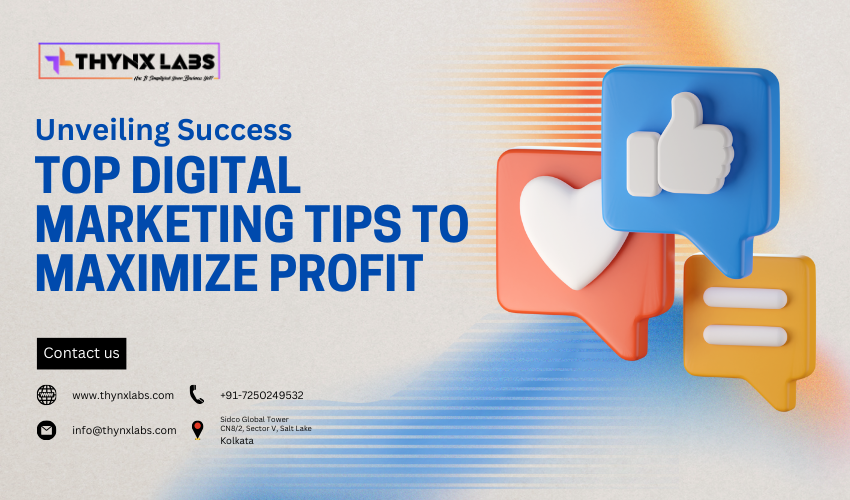Online Marketing Strategy for 2023
Leading the Digital Wave: Online Marketing Strategy for 2023
In today's fast-paced digital landscape, businesses need to stay ahead of the curve to remain competitive. With the constant evolution of online marketing strategies, it's crucial for companies to adapt and embrace the latest trends. As we step into 2023, the digital wave continues to surge, offering new opportunities for businesses to connect with their audience and enhance their online presence. In this article, we will explore cutting-edge online marketing strategies that can help businesses lead the digital wave in 2023.
1. Embracing Artificial Intelligence in Marketing
Artificial Intelligence (AI) has revolutionized the way businesses approach marketing. From chatbots providing instant customer support to personalized product recommendations, AI enables businesses to enhance user experience and engagement.
2. Video Marketing Dominance
Video content remains a powerhouse in digital marketing. With platforms like YouTube, TikTok, and Instagram Reels gaining immense popularity, businesses need to leverage video marketing to convey their brand message effectively. Engaging and creative videos can captivate the audience, leading to higher conversion rates.
3. Voice Search Optimization
With the rise of voice-activated devices like smart speakers and virtual assistants, optimizing content for voice search has become pivotal. Businesses should focus on natural language keywords and conversational phrases to ensure their content appears in voice search results, enhancing visibility and accessibility.
4. Interactive Content for Enhanced Engagement
Interactive content such as quizzes, polls, and augmented reality experiences provides an immersive way for users to interact with a brand. Interactive content not only engages the audience but also provides valuable insights into consumer preferences, enabling businesses to tailor their marketing strategies accordingly.
5. Social Commerce Integration
Social media platforms have transformed into e-commerce hubs, allowing users to discover and purchase products without leaving the app. Businesses should capitalize on social commerce features, enabling seamless transactions and enhancing the overall shopping experience for customers.
6. Sustainability and Social Responsibility
Consumers are increasingly conscious of environmental issues and social causes. Brands that align themselves with sustainable practices and social responsibility initiatives resonate better with socially aware consumers. Incorporating eco-friendly practices and supporting charitable causes can enhance brand loyalty and reputation.
7. Personalization at Scale
Personalization goes beyond addressing customers by their first name in emails. Advanced tools and algorithms enable businesses to analyze vast amounts of data, allowing for personalized product recommendations, content, and marketing messages tailored to individual preferences. Personalization at scale enhances customer satisfaction and drives conversions.
8. Influencer Collaboration for Authenticity
Influencer marketing continues to thrive in 2023, but authenticity is key. Collaborating with influencers whose values align with the brand creates genuine connections with the audience. Authentic influencer partnerships can build trust, increase brand credibility, and drive organic growth.
9. Data Privacy and Security
With increasing concerns about data privacy, businesses must prioritize the security of customer information. Implementing robust data protection measures and transparent privacy policies not only comply with regulations but also foster trust among consumers, leading to long-term customer relationships.
10. Mobile-First Approach
As mobile device usage continues to rise, optimizing websites and marketing campaigns for mobile platforms is non-negotiable. A seamless mobile experience, including fast-loading pages and user-friendly interfaces, is essential to cater to the growing mobile audience.
Conclusion
In the dynamic landscape of digital marketing, staying ahead of the curve requires continuous adaptation and innovation. By embracing AI, leveraging video marketing, optimizing for voice search, creating interactive content, integrating social commerce, emphasizing sustainability, personalizing at scale, collaborating with authentic influencers, ensuring data privacy, and adopting a mobile-first approach, businesses can lead the digital wave in 2023.
Frequently Asked Questions
Q1: What is the significance of AI in digital marketing strategies?
A: Artificial Intelligence enhances user experience, provides personalized recommendations, and improves customer engagement, making it a vital component of modern marketing strategies.
Q2: How can businesses ensure data privacy in their online marketing efforts?
A: Businesses can prioritize data security by implementing encryption, regularly updating security protocols, and being transparent with customers about data usage and privacy policies.
Q3: Why is video marketing important for brand promotion?
A: Video marketing captivates audiences, conveys messages effectively, and boosts engagement. It allows businesses to connect with their audience on a deeper level, leading to increased brand awareness and loyalty.
Q4: What role do influencers play in digital marketing?
A: Influencers can amplify brand messages authentically, reaching a wider audience. Genuine influencer collaborations build trust and credibility, driving organic growth for businesses.
Q5: How does a mobile-first approach benefit online businesses?
A: A mobile-first approach ensures that websites and marketing materials are optimized for mobile devices, providing a seamless user experience. This is crucial as a significant portion of internet users access content through smartphones and tablets.


